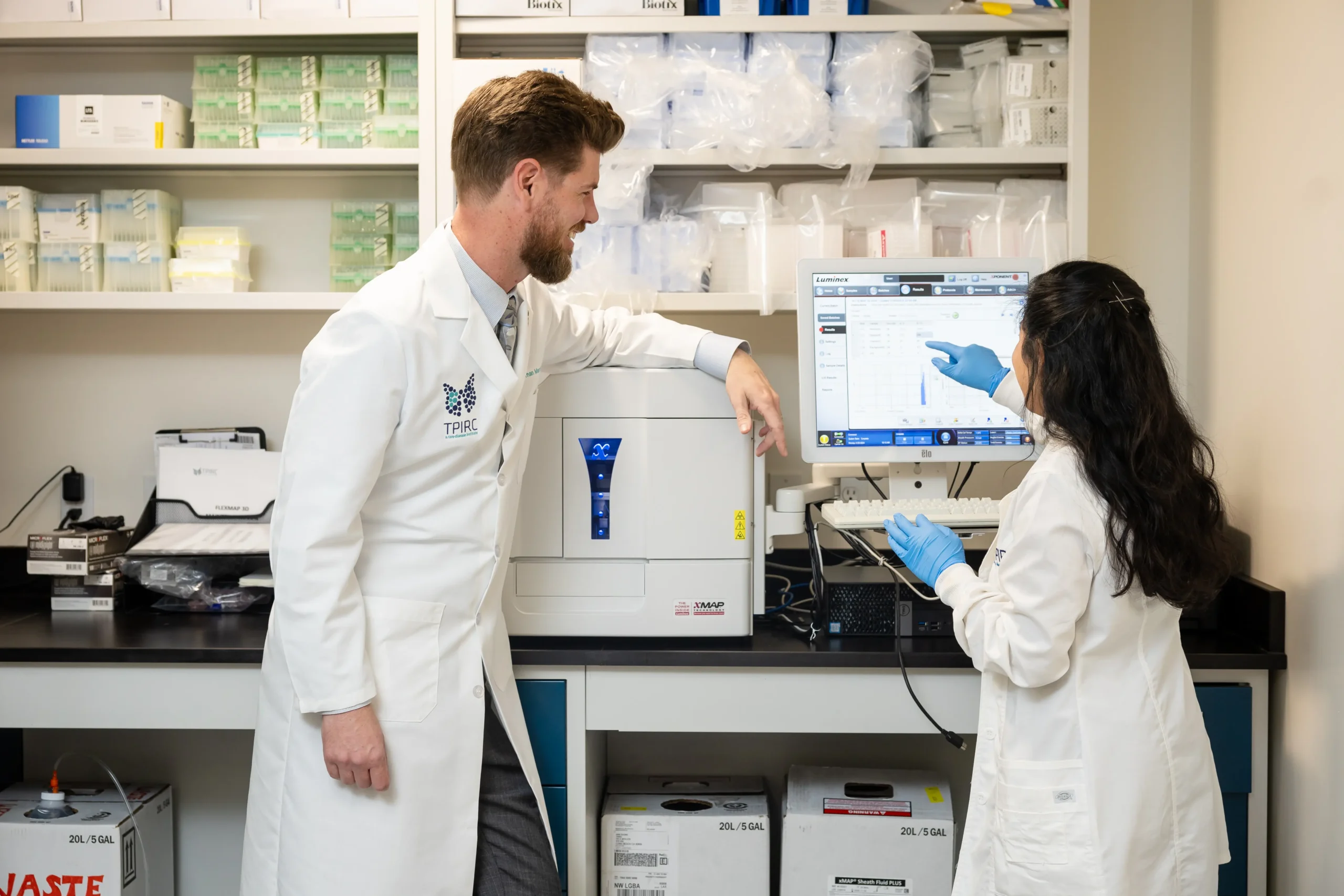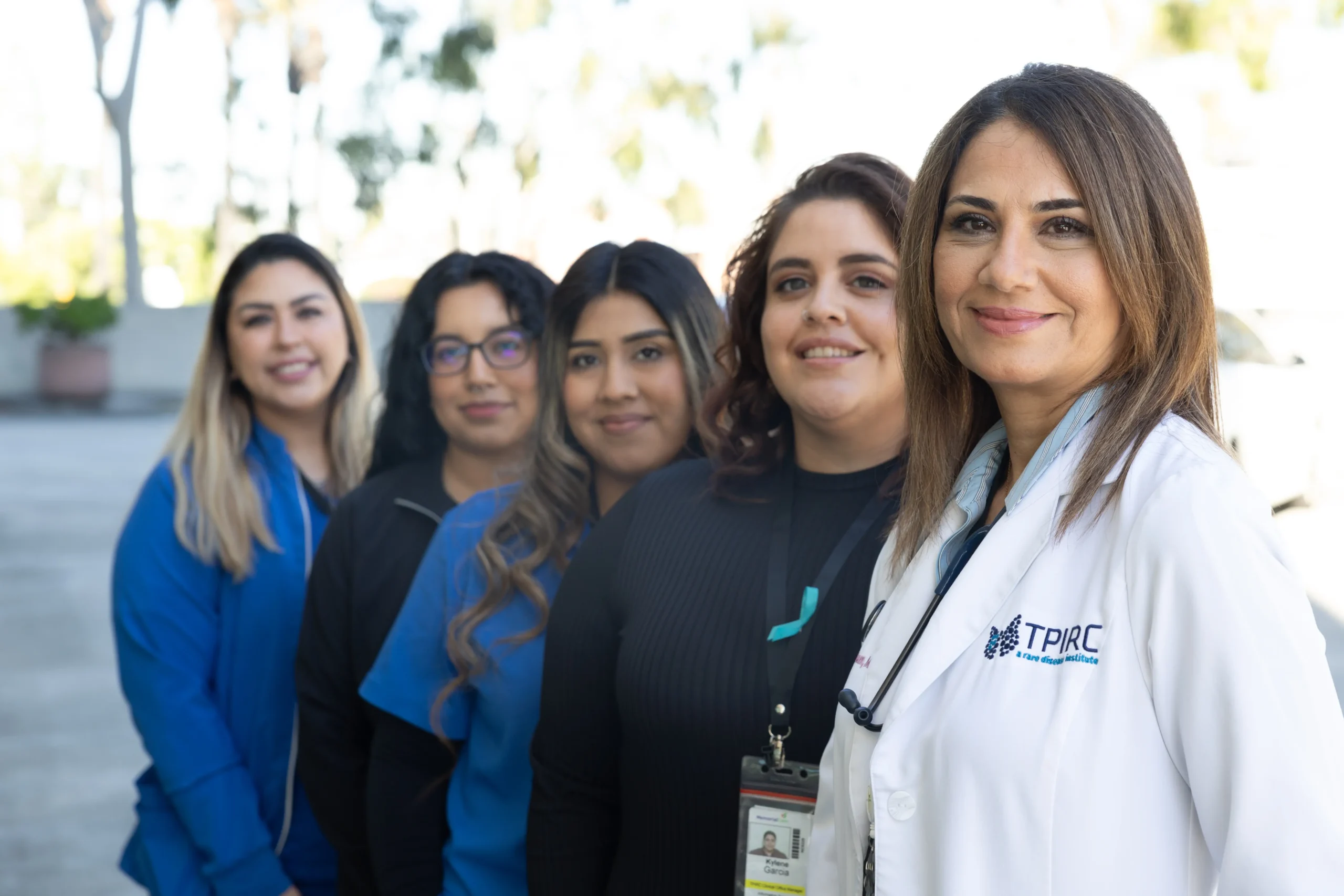Translational Pulmonary
& Immunology Research Center
& Immunology Research Center
TPIRC, Translational Pulmonary and Immunology Research Center, was established in 2015 by Dr. Inderpal Randhawa. Early in his career, Dr. Randhawa dedicated his career to challenging conventional approaches to treating life-threatening food allergies, and now multiple rare diseases. This challenge involved meticulously studying vast amounts of genetic and environmental data to develop personalized, data-driven treatment plans for each patient. This multi-system approach yielded an unprecedented success rate, allowing countless food-allergic individuals, particularly children and young adults, to safely enjoy foods that were once considered dangerous.
TPIRC’s success wasn’t limited to food allergies. Dr. Randhawa’s innovative model, built on precision medicine and data analysis, proved effective in tackling a wider range of complex and often rare diseases. This unique approach led TPIRC to become a safe and trustful clinic and research center for patients facing the challenges of rare and orphan diseases.

TPIRC is a non-profit research and clinical care center that focuses on the development of cutting-edge, individualized treatment protocols for orphan diseases utilizing comprehensive diagnostic tools and patient-driven research.

Our mission is two-fold: to advance treatment discovery at a pace that helps our patients today while building a scalable model of success to accelerate the rate of research discovery for all diseases.
To harness the power of big data to unravel the mysteries of rare diseases and deliver cures that restore hope and health to patients and families around the world.

TPIRC’s primary focus areas are food allergies, cystic fibrosis, bronchiectasis, airway inflammatory disorders, and immunodeficiency. Sometimes referred to as “orphan diseases”, better, more effective, and lasting treatments for these conditions are a TPIRC priority.
The TPIRC Biobank contains thousands of patient blood samples. It was created as a research resource that includes bio-specimens and clinical data collected longitudinally from TPIRC patients. Patient privacy is always respected.

We are growing – inside and out. In the near future, we are planning on opening new clinics at strategic spots throughout the US. We are also growing from within as we continue to plan and expand our patient care, community engagement, and philanthropic initiatives. TPIRC is always an organization to evolve, grow, and change.

TPIRC is proud to be associated with Lung and Allergy Health Associates (LAHA) – a coordinated organization of physicians and healthcare groups focused on patient care and innovation.
TPIRC Diagnostics (formerly Foundation Labs) is the only allergy and pediatric pulmonary diagnostic lab in the nation. It is a blood draw center as well as a sample processing and lab testing center.

The TPIRC butterfly logo represents the hope our institute offers to orphan diseases. Lifting this butterfly are wings representing lungs composed of many smaller circular segments. The lungs are the most critical organ to live. The lungs are composed of many vital connections to other areas of the body’s composition of health. Each circle exemplifies important disease areas that affect human health.
TPIRC is organized around a complete and comprehensive analysis of numerous data points studying many of these critical connections that yield health. TPIRC’s model of disease research, discovery, and therapy is not limited to any one disease. However, the butterfly’s wings are highlighted by five blue circles representing Dr. Randhawa’s sentinel interests: food anaphylaxis, bronchiectasis, cystic fibrosis, immune deficiency, and airway inflammatory disorders. TPIRC’s success in an array of diseases reflects its ultimate goal — to leave no disease behind.
